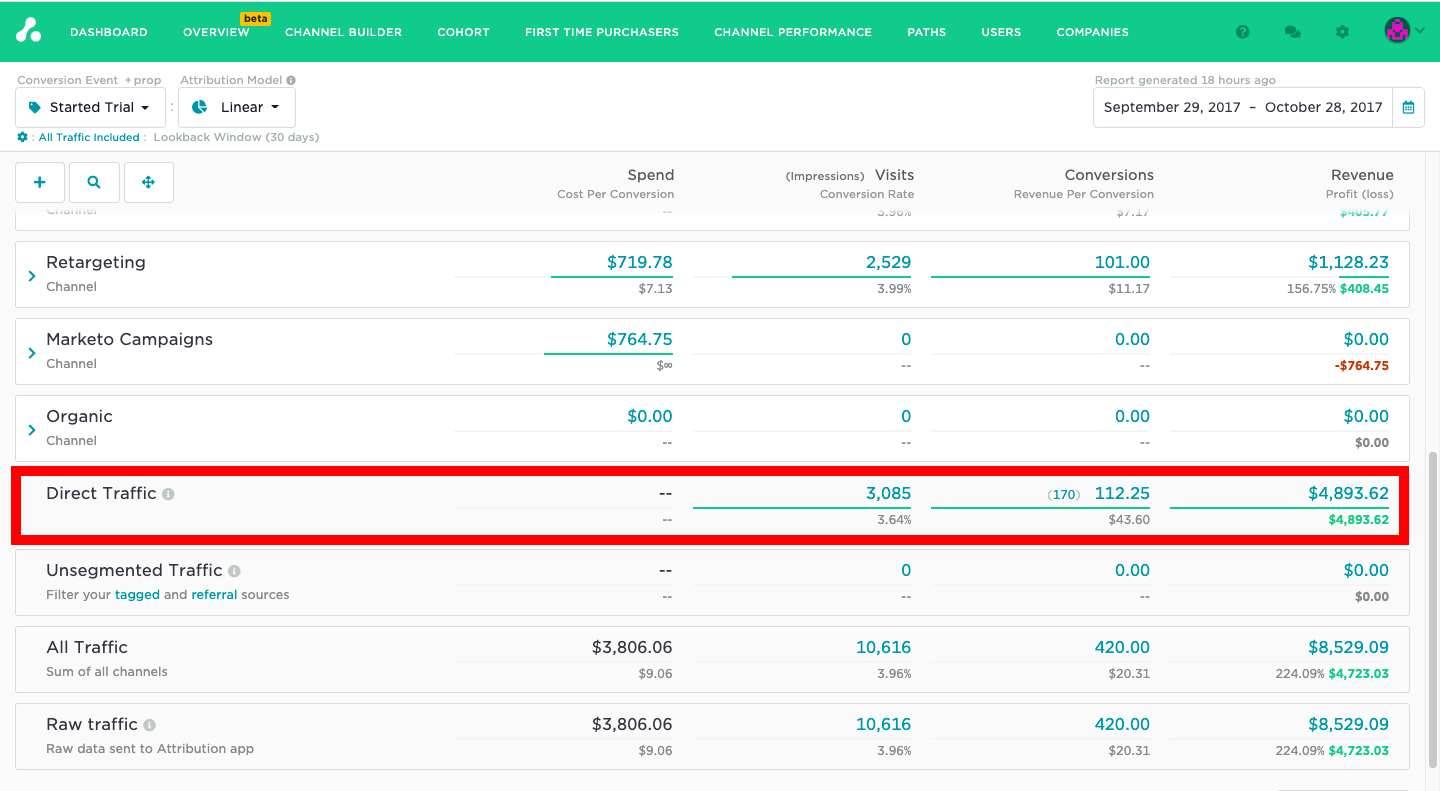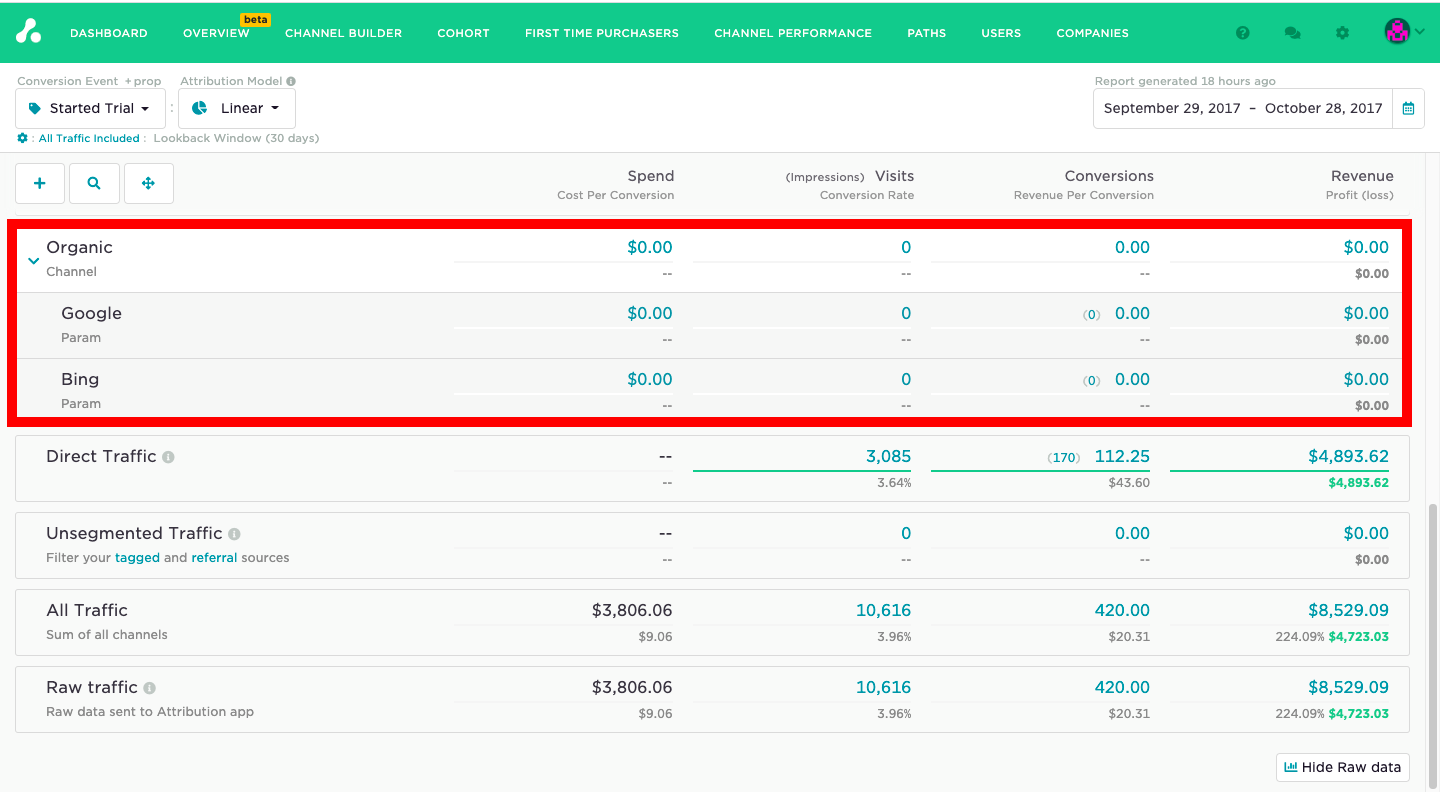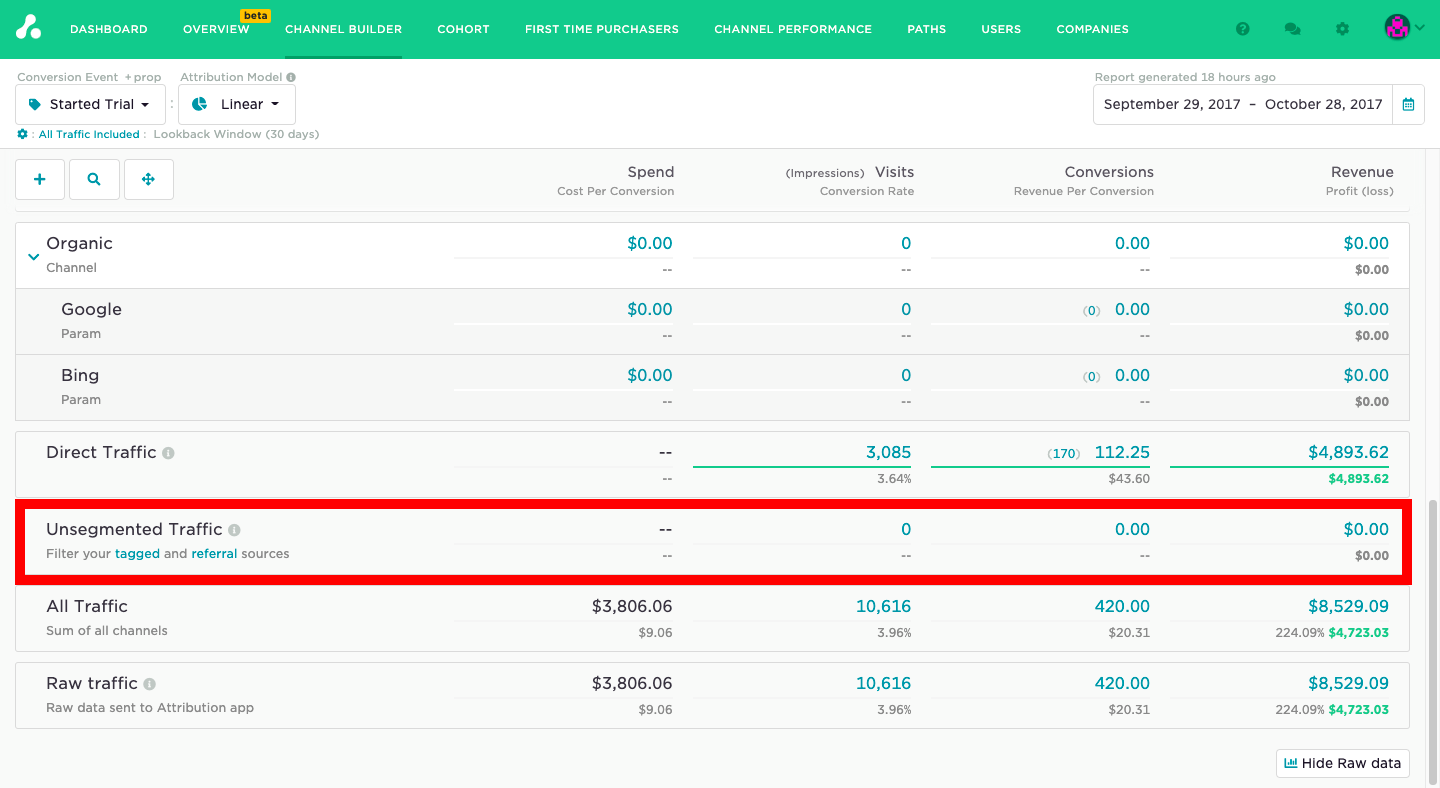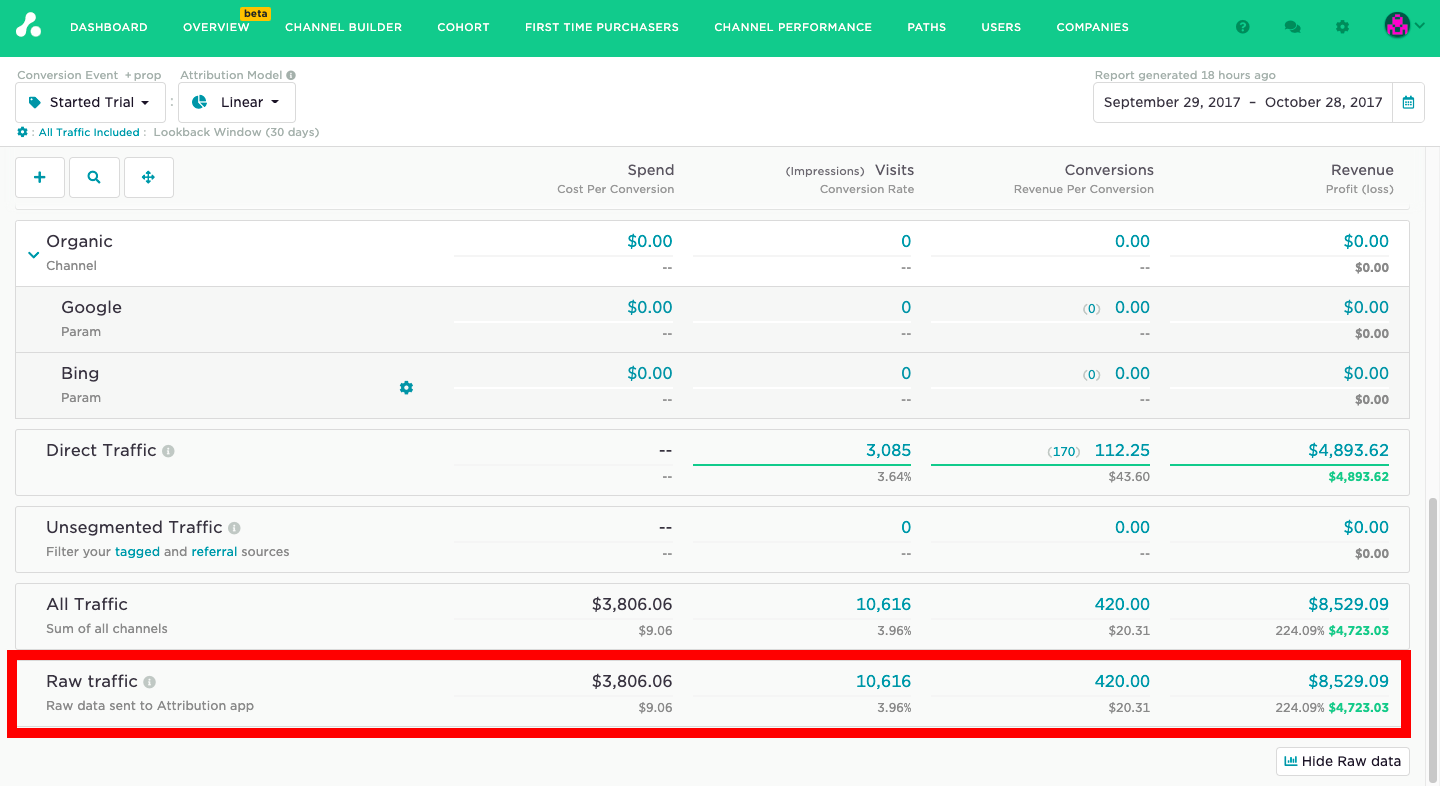Default channels
Learn about the channels that automatically come with your dashboard
When you first start using Attribution you may notice there are some default channels on your dashboard. The default channels are, unknown source, unsegmented, direct, raw and organic. Each of channels has some specific purpose that we can dive into more below.
Direct traffic: visitors coming directly to your site
Attribution considers any visit via the following methods as direct traffic:
-
Type-In Traffic - When a visitor simply types your URL from memory and visits your site. It is truly the only real "direct" way for them to get there.
-
Bookmark Traffic - If a visitor has your site bookmarked, no referrer information will be provided in the request, therefore Attribution will consider this direct.
-
Email Traffic - emails with links to your site will not be tracked back to the email if you do not include tracking parameters. You should always provide tracking parameters in the links you include in your emails. For example, you can make an email link with https://attributionapp.com/utm_source=email for proper tracking.
-
Document Link Traffic - if you have links to your site embedded in a document such as Microsoft Word, or a PDF, there will be no referrer and therefore the visit will be segmented into Direct Traffic unless you include tracking parameters.
-
Secure to Non-Secure Site Linking - if your site is insecure (http) and the visit is from a secure site (https) the referrer will not be passed from the secure site and the visit will look like Direct Traffic.
-
Links from Native Mobile Apps (like Facebook App) - if a visitor clicks a web link in a mobile app, such as the news feed in the Facebook native mobile app, the app will not pass along referrer information and it will appear that it is Direct Traffic.
Note: With some model customizations you can choose to ignore direct traffic.

Organic traffic: visitors coming to your site from non-paid sources
This is another opportunity to emphasis Attribution's referrer & destination url tracking method. If you have not already, please be sure to check out the article on 'visits & visitors' it will help a great deal in understanding Attribution.
In any case, Attribution will again look at the referring & destination urls of the visitor to determine organic traffic. For example, if a visitor were to arrive to Attribution's webpage from the referring domain https://www.google.com and the destination domain https://attributionapp.com, the dashboard would filter this as organic.
The reason is because there is a referring domain, which is https://www.google.com, but the destination domain contains no unique tracking parameters, which suggests that it is organic.
Attribution will aim to track Organic traffic from all the major search partners like Google & Bing.

Unsegmented traffic: visits you're not currently filtering for
The unsegmented channel will show you the visits, conversions, and revenue driven from sources you are not currently filtering for on your dashboard. You can investigate these sources using the channel builder. Please check out our article specifically on the channel builder here for more information.

Raw traffic: audit spend, conversions, & revenue
The raw traffic channel will show all the data that has been sent to Attribution from your conversion tool in the selected date range. It is extremely important to note that the data shown is considered RAW which means it is yet to be handled by our attribution model and may differ slightly from the all traffic channel on your dashboard which has been modeled based on your settings. Raw traffic is designed to be a check or auditing tool on Attributions data. It is showing what events, spend, and revenue were recorded from your tools without considering any model view like marketing spend view or look back window nor model type like linear, first-touch, last-touch etc.

Unknown Source: traffic that cannot be attributed to any visit
Unknown Source is only related to conversion events. An unknown source conversion event occurs when there is no prior visit to associate the event with. If Attribution is properly installed there should always be a visit prior to a conversion event. The report will collect visits and model events based on your customizations, if there is no visit - event has no touchpoint to be associated with and is assigned to "Unknown Source".
There are some common causes for unknown source traffic that we can discuss below:
-
You have connected Conversion Integration for CRM or similar systems like HubSpot, Pipedrive, Salesforce, Stripe. When doing so you need to make sure that all of the new leads/customers/accounts/deals/opportunities you create in these systems have been previously identified with
emailtrait on a website. If it's not the case and you import or create manually Leads/Contacts in CRM - Attribution will not know if they ever visited your website. Also customers that existed before you installed Attribution could generate events and since you don't have prior visits history for them their events could fall into Unknown Source. -
When you first connect to Attribution app you may already have existing users and your site might already be sending events for these users. However because these users haven't yet visited your site with Attribution installed, there would be no visit to tie these conversion events to - resulting in unattributable traffic. This is common in situations where the visitor rarely visits the site but events are firing for them on the server-side (e.g. monthly subsubscription).
-
Tracking the event before the page view. Sometimes your code can look like:
Attribution.track('Landing Page Event');
Attribution.page();Technically the code above is correct, but the first line is the event and second is page view, there could be fractions of seconds between the two of them firing, but still the event comes before page view which will result in an error. Instead you should be calling page() before track(), like:
Attribution.page();
Attribution.track('Landing Page Event');- Ad-blockers. Most of ad-blockers can block Attribution (and/or Segment) page views and identify call but not server-side events. As a result you can have unknown source events from visitors who use ad-blockers.
- Other issues, mostly technical or incorrectly setup snippet. If you see significant amount of events hitting unknown source traffic filter, please contact [email protected] for assistance.
Updated 5 months ago
